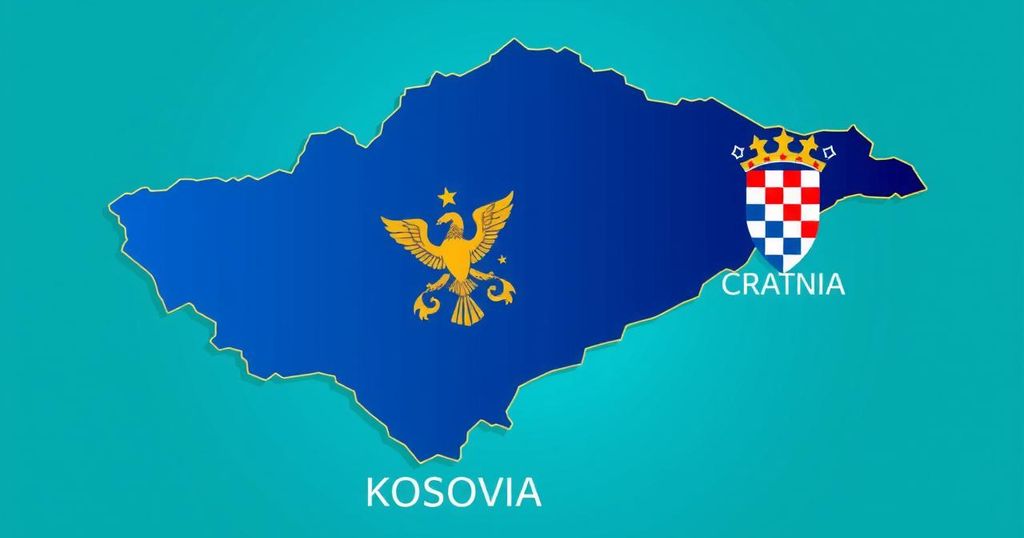Controversy Over Kosovo, Albania, and Croatia’s Military Alliance Declaration

The trilateral military alliance declaration among Kosovo, Albania, and Croatia has generated controversy regarding its potential effects on regional stability and diplomatic relationships, particularly with Serbia. The pact, viewed by critics as provocative, involves military collaboration but is celebrated by supporters as a step towards security and integration. The reactions from the three countries reflect diverse perspectives on the agreement’s implications for regional dynamics.
The recent trilateral military alliance declaration between Kosovo, Albania, and Croatia has sparked significant controversy across the Western Balkans. Concerns have arisen regarding its implications for regional stability, diplomatic relations, and the broader geopolitical balance in Southeast Europe. The countries involved have presented the pact as a means of enhancing security cooperation, yet critics argue it may worsen political divisions and escalate tensions with neighboring states, particularly Serbia.
The declaration encompasses military collaboration, which includes joint training, cybersecurity coordination, rapid response mechanisms, and defense procurement. However, many analysts perceive the alliance as a substantial political statement, especially with Kosovo at the forefront of the agreement. As Kosovo declared independence from Serbia in 2008 and is not recognized by several UN member states, the military pact with two NATO nations is deemed a provocative geopolitical maneuver.
Dr. Marko Ivković, a security analyst from Belgrade, comments on the situation, stating, “This alliance is not just about defence—it’s about redefining the regional balance of power.” He emphasizes that the agreement signals Kosovo’s evolving role as a de facto NATO partner, despite lacking formal recognition. As expected, Serbian officials reacted strongly, condemning the alliance and claiming it threatens regional peace and undermines dialogue efforts between Serbia and Kosovo.
Serbian President Aleksandar Vučić labeled the declaration a “dangerous escalation,” cautioning that it could trigger a regional arms race. He stated, “This agreement does not contribute to peace—it isolates Serbia and fuels division,” asserting that Serbia will not passively accept adjustments to the region’s security architecture.
Pro-government media in Serbia have suggested that the alliance might lead to a form of Albanian-Kosovar military integration, raising concerns of a “Greater Albania” agenda, a recurring theme in Balkan nationalism. Although Tirana and Pristina consistently deny such intentions, apprehensions persist.
Additionally, some EU diplomats have expressed worries that the trilateral pact could further complicate Serbia’s EU accession journey and rekindle nationalist rhetoric across the region. An EU official in Brussels advised that, “This type of military coordination needs to be carefully managed,” highlighting the potential for conflict in a fragile geopolitical landscape.
Responses within the signing countries have varied. In Kosovo and Albania, the military pact is largely viewed as a significant step toward regional integration and security assurance. Conversely, in Croatia, some political factions have raised concerns about the depth of military ties with Kosovo, citing legal uncertainties and the implications for relations with Serbia, a crucial trading partner.
In summary, the military alliance between Kosovo, Albania, and Croatia has triggered considerable debate and concern within the Western Balkans. Critics argue it exacerbates tensions with Serbia, while proponents view it as a step towards security and cooperation. The mixed reactions from the involved countries underscore the complexities surrounding regional politics and highlight the fragile nature of ongoing diplomatic efforts in Southeast Europe.
Original Source: globalsouthworld.com








